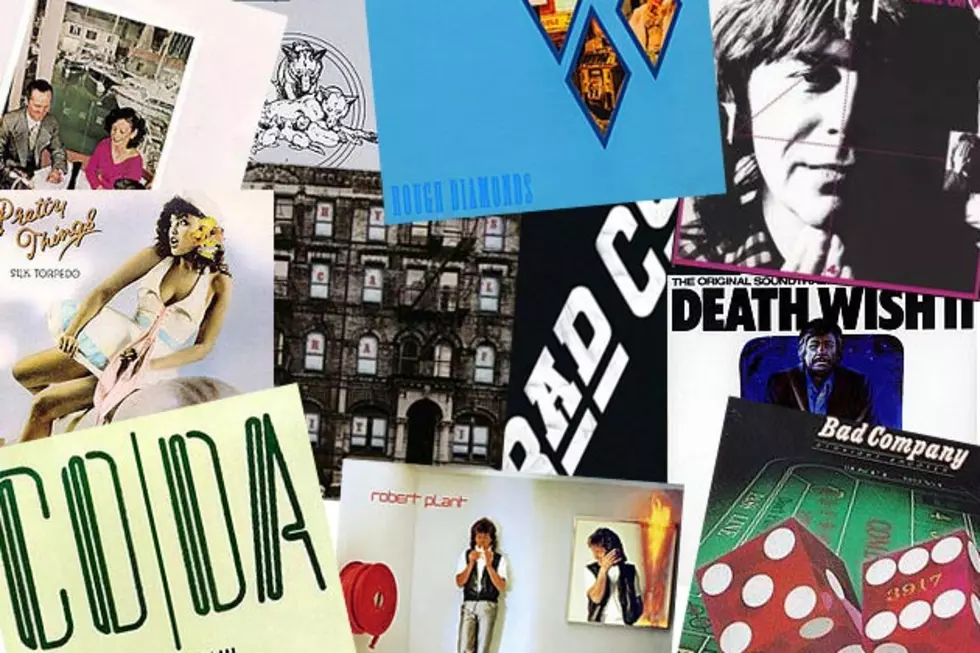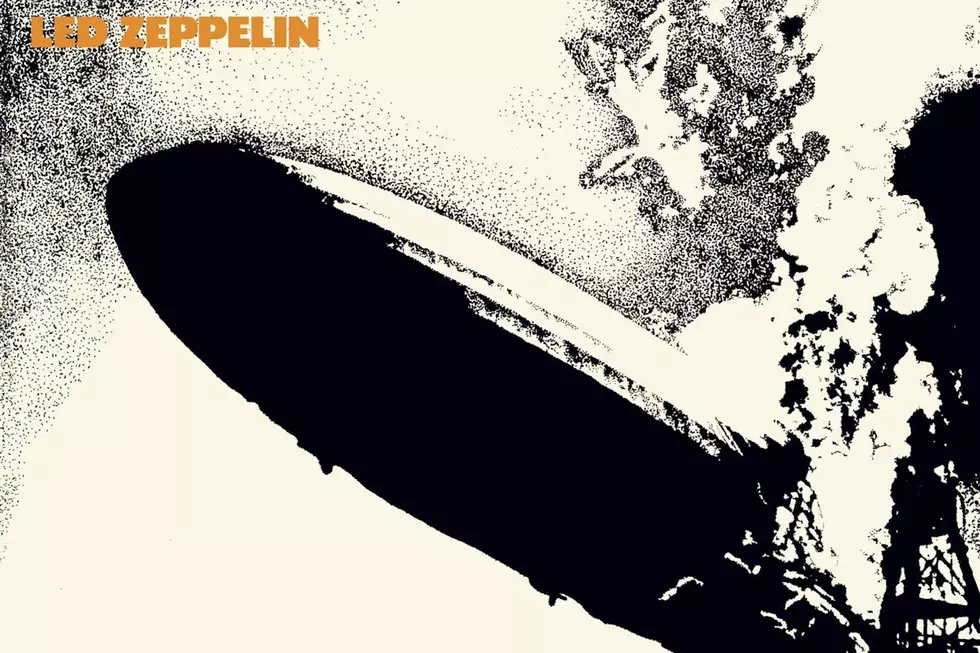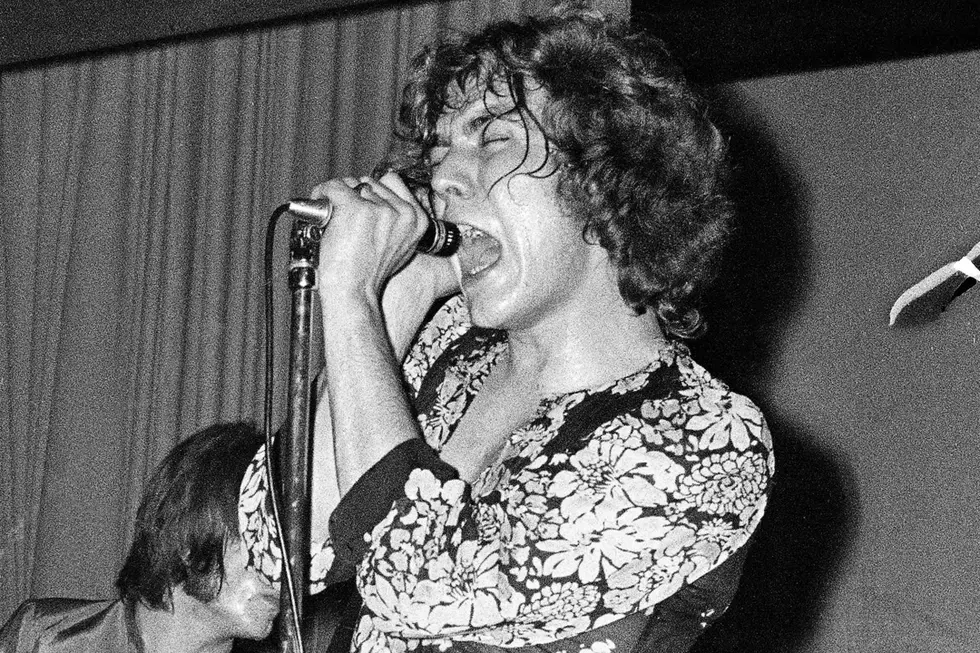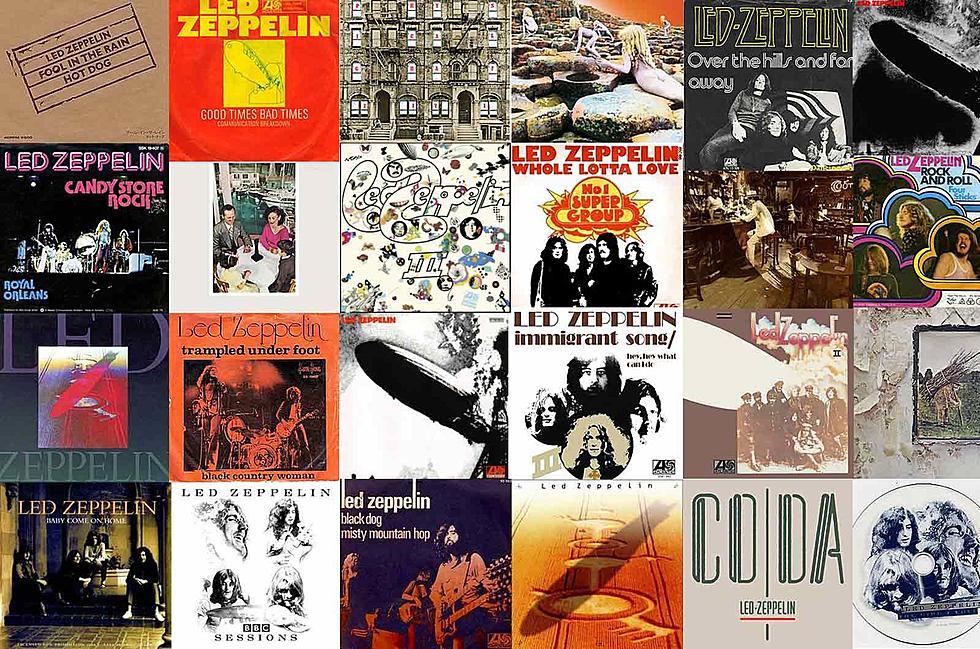
The History of Swan Song Records
When Led Zeppelin launched Swan Song Records in 1974, everyone around the industry just assumed it would be another vanity label. While the company did indeed play host to all of the band’s latter-day releases, beginning with Physical Graffiti in 1975, the band (and Jimmy Page in particular) had larger designs in mind for the enterprise.
In a 1977 interview, Page discussed his impetus for bringing other artists in. “Having gone through, ourselves, what appeared to be an interference, or at least an aggravation, on the artistic side by record companies,” he said, “we wanted to form a label where the artists would be able to fulfill themselves without all of that hassle.”
Page and Zeppelin manager Peter Grant were no doubt keenly aware of the errors that brought down the Beatles' label Apple years earlier, and were keen to avoid similar mistakes themselves.
“The people we were looking for the label would be people who knew where they were going themselves," Page said. “We didn't really want to get bogged down in having to develop artists. We wanted people who were together enough to handle that type of thing themselves.”
Maggie Bell's 'If You Don't Know' (1975)
Swan Song’s imprint was never intended to be all that large. “We just want four or five acts that we could add something to,” Grant declared in a 1974 interview with Melody Maker. The first act signed to the label was rock singer Maggie Bell. The Scotland native was also managed by Grant, who received an executive producer credit on her first solo album, 1973's Queen of the Night.
After Bell was brought on board, she set about to working on her next record. Suicide Sal, released in 1975, was her first for Swan Song – and, in a bit of hands-on help, featured a song with Page called "If You Don’t Know." While not a huge commercial success, the project was well received by the critical community and Bell was given the title Best Female Singer at the 1975 Melody Maker Awards. Due to increasing dysfunction within the group and an overstretched Grant, Bell would go on to release just one more record under the Swan Song label, a 1981 collaboration with the band Midnight Flyer.
The second act the group signed, and the first one to issue a release under the imprint, was far more successful. Bad Company was formed in 1973 out of the ashes of three different groups. Singer Paul Rodgers and drummer Simon Kirke arrived from Free, bassist Boz Burrell from King Crimson and guitarist Mick Ralphs from Mott the Hoople.
Bad Company's 'Can't Get Enough' (1974)
In an interview, Rodgers recalled what fueled the band’s decision to sign with Swan Song. “They wanted to share some of their glory, I suppose, and give people a chance – which I thought and have always thought was just a fantastic, lovely thing to do. I had a friend who was a road manager, Clive Coulson, and he worked with us in Free. He went on to work with Led Zeppelin, and he called me up when I was looking for a management firm for Bad Company. He said: ‘You should call Peter Grant up. I happen to know he's very interested in what you're doing.’"
Bad Company went on to release six records on the Led Zeppelin imprint. Their self-titled first release proved to be the most successful – and was actually recorded at Headley Grange, the same site that hosted the recording of Led Zeppelin III, IV, Houses of the Holy and Physical Graffiti. Bad Company’s affiliation with Swan Song ended in 1982, around the time of Rodgers’ departure and just before the label's official end.
The Pretty Things' 'Joey' (1975)
Other acts that were signed to Swan Song included the Pretty Things, Dave Edmunds, Mirabai, Detective and Sad Café. The Pretty Things, in particular, began their time under the label with a bang with the release of their record Silk Torpedo in 1974. It was Swan Song’s second release and fortuitously their second No. 1 hit. The company scored their third consecutive chart-topper the following year, with the release of Zeppelin’s Physical Graffiti.
Dave Edmunds' 'Little Darlin" (1977)
As the '70s wore on, Led Zeppelin’s interest in signing and promoting outside talent waned. After John Bonham’s death in 1980, it evaporated completely. Swan Song chugged along on life support until 1983, playing host to Zeppelin-related solo releases like Page’s soundtrack to the film Death Wish II and singer Robert Plant’s first solo album, Pictures at Eleven. It continues to live on to this day only in a reissue capacity.
Robert Plant's 'Burning Down One Side' (1982)
In the book Led Zeppelin: The Oral History of the World’s Greatest Rock Band, Swan Song's U.K. president Alan Callan reflected on what might have been had Bonham lived: “The sad thing is that Peter and I had just started talking again about what we could do with Swan Song when John died. And then it was all really over.”
Led Zeppelin' 'Wearing and Tearing' (1982)
THE SWAN SONG LABEL DISCOGRAPHY
1974:
Bad Company, Bad Company
Pretty Things, Silk Torpedo
1975:
Led Zeppelin, Physical Graffiti
Maggie Bell, Suicide Sal
Bad Company, Straight Shooter
Pretty Things, Savage Eye
1976:
Bad Company, Run With the Pack
Led Zeppelin, Presence
Led Zeppelin, The Song Remains the Same
1977:
Bad Company, Burnin' Sky
Detective, Detective
Dave Edmunds, Get It
1978:
Detective, It Takes One to Know One
Dave Edmunds, Tracks on Wax 4
1979:
Bad Company, Desolation Angels
Dave Edmunds, Repeat When Necessary
Led Zeppelin, In Through the Out Door
1981:
Midnight Flyer, Midnight Flyer
Dave Edmunds, Twangin'
Sad Cafe, Sad Cafe
Dave Edmunds, Best of Dave Edmunds
1982:
Midnight Flyer, Rock 'n' Roll Party
Jimmy Page, Death Wish II
Robert Plant, Pictures at Eleven
Bad Company, Rough Diamonds
Led Zeppelin, Coda
1983:
Wildlife, Wildlife
Top 40 Blues Rock Albums
You Think You Know Led Zeppelin?
More From Ultimate Classic Rock









